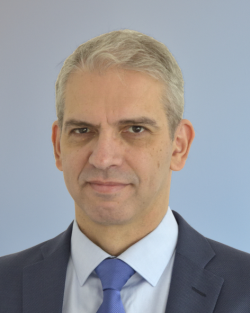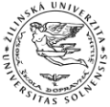Keynotes
Advanced Manufacturing Simulation and Robotics in Industry
Abstract
Digital manufacturing and process simulation tools play an increasingly important role in the design, modelling and commissioning of robotic cells in industrial environments. Modern simulation tools are also capable of modelling hybrid human-robot cells, which are typically utilised in more demanding processes and tasks. In this talk, the major advances over the last years as well as the main challenges, which still remain to be addressed in the field of robot digital modelling and simulation, will be presented. The standard and advanced features of both commercial and open platforms will be presented. The discussion will shed some light on what the main steps of future development could be in order for more accurate and flexible simulation tools to be offered to robot experts and engineers. Information and cases related to diverse manufacturing settings in the automotive, aerospace and biopharma industrial sectors will be discussed.
Curriculum Vitae
Associate Professor Nikolaos Papakostas is the Research Director of the Laboratory for Advanced Manufacturing Simulation & Robotics and the Director of the Master in Engineering with Business Programme in the UCD School of Mechanical & Materials Engineering. His area of expertise includes the fields of robotics, digital manufacturing, process simulation and optimisation as well as innovative Web technologies for manufacturing applications. From 2005 until 2015 he has worked in the Laboratory for Manufacturing Systems and Automation, University of Patras, Greece. He has participated in a number of research projects and most recently he was the technical coordinator of the FP7 Know4Car and H2020 ICP4Life EU-funded research projects. From 2001 till 2005, he has worked as IT Manager in the second largest company in the field of steel products and constructions in Greece. He has more than 90 publications in international scientific journals and refereed conferences. He received a PhD in Engineering (2000) and a Diploma (Master of Engineering) in Mechanical Engineering from the University of Patras (1995).
Lessons learned in delivering 300+ Models
Abstract
I have been working as a professional data scientist and AI expert for the past 5+ years in the industry. In this talk, I am sharing the most important lessons I have learned in delivering 300+ models on production. The core focus will be on adding business value using machine learning and AI, and how different it is from academic work.
Curriculum Vitae
to be added in
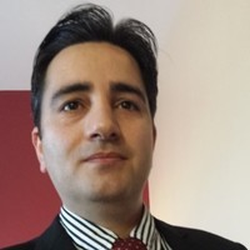
Head of Big Data & AI at Vodafone
Dublin, Ireland
Invited Speakers
3D Medical Image Analysis and Visualization
Abstract
Imaging has become an essential component in many fields of bio-medical research and clinical practice. Radiologists identify and quantify tumors from MRI and CT scans, and neuroscientists detect regional metabolic brain activity from PET and functional MRI scans. Analysis of these diverse types of images requires sophisticated computerized quantification and visualization tools. This motivates us to design and develop standard user interface and analysis tools (computer aided diagnostics: CAD) so that researcher and clinicians can easily share research data and analyses, thereby enhancing their ability to study, diagnose, monitor and treat medical disorders with better accuracy. Image acquisition, preprocessing, segmentation of region of interest, feature extraction and classification are some of the key process steps that are performed in extracting useful information from medical images. Multimodal medical image analysis along with 3D information extraction is also the recent trends in computer aided diagnostics.
This lecture will discuss the fundamental process steps for medical image analysis, with a brief insight on the CAD Techniques for 3D reconstruction, localization and segmentation as applied in medical image analysis.
Short Biography
Amlan Chakrabarti is a Full Professor in the A.K.Choudhury School of Information Technology at the University of Calcutta. He is also the Dean, Faculty of Engineering and Technology of his university. He is an M.Tech. from University of Calcutta and did his Doctoral research at Indian Statistical Institute, Kolkata. He was a Post-Doctoral fellow at the School of Engineering, Princeton University, USA during 2011-2012. He is the recipient of prestigious DST BOYSCAST fellowship award in Engineering Science (2011), Indian National Science Academy (INSA) Visiting Faculty Fellowship (2014), JSPS Invitation Research Award (2016), Erasmus Mundus Leaders Award from EU (2017) and Hamied Visiting Professorship from University of Cambridge (2018) and Siksha Ratna Award by Dept. of Higher Education Govt. of West Bengal (2018). He has also served in various capacities in various higher education organizations both at national and international level.
He has served as one of the Principal Investigators in the Centre of Excellence in Systems Biology and Biomedical Engineering at his University during 2013-2017. Till date he has graduated 9 Ph.D. students. He has published around 130 research papers in referred journals and conferences and presently serving as the Guest Editor of the Springer Nature Journal of Applied Sciences. He is a Sr. Member of IEEE and ACM, Distinguished Speaker of ACM, Secretary of IEEE CEDA India Chapter and Life Member of CSI India.
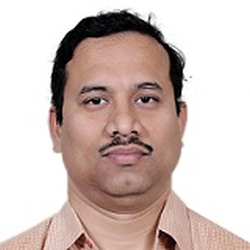
Faculty of Engineering and Technology
A.K. Choudhury School of I.T.
University of Calcutta, India
Financial and Business Cycles: Statistical and Econometric Models
Abstract
The problem of a possibility of a risk-free trading at a stock exchange is one of the central in Financial Analysis. Is it possible to beat the market (accounting for the transaction costs and time value for money) without any risk exposure? If so, under what conditions this is possible? In this paper we offer our answers to these important questions using our novel theory of cycles. This theory is two-fold (a) Statistical Models: studying the time-series of the financial asset prices, without trying to explain the fundamental reasons for the cycles and (b) Econometric Models: explaining and predicting cycles from the Economic reasoning.
Our Statistical are date-based, they do not employ any economic indicators or economic principles. The models we suggest are based on the following cornerstones:
- Formal Statistical definition of cycles, speculative cycles and speculative time-series.
- How common in real world the speculative time series are?
- Optimal trading strategies for the speculative series.
- Smoothing and error reduction models for financial cycles.
The Econometric Models can further improve the trading strategies as they allow predicting the direction of the market moves.
The classical business cycle (CBC) is defined as a succession of expansion and contraction phases. It is gotten in searching the turning points of the real GDP series. A trough is the analogue of a local minimum and marks possibly the beginning (resp. the end) of an expansion (resp. recession); a peak is the analogue of a local maximum and signals the coming (resp. the end) recession (resp. expansion). Identifying the ups and downs of the economy is done using the BBQ algorithm (Bry-Boschan Quarterly). The application of this procedure to GDP provides a chronology of the business cycle in the form of a binary series consisting of zeros and ones.
In a second step, a dynamic probit model, i.e. a qualitative econometric model, is used to predict recessions. The dependent variable is given by the binary series, whilst the explanatory variates are essentially financial, for example the yield curve or the credit expansion. The model finally yields recession probabilities for a determined economy.
The lecture will be followed by a tutorial where the new models will be illustrated with computational examples with reals data and simulations.
Curriculum Vitae Igor Litvine
Igor Litvine completed his Masters degree in Applied Mathematics with Distinction in 1980 (Kiev Shevchenko University, Ukraine). In 1984 he received his PhD in Applied Statistics at the same University. In 2016 he received the Doctor in Economics Degree from the University of Lorraine, France. Prof Litvine was employed by the following Universities: Kiev Shevchenko University (1984‐1989), Addis-Ababa University (1989‐1993), National University of Lesotho (1993‐1994), and Nelson Mandela University ‐ previously University of Port Elizabeth (1995‐now). Visiting Professorship in the University of Fort Hare (RSA), Sultan Qaboos University (Oman), University of Information and Communication Technologies (Ukraine) and University of Lorraine (France). Prof Litvine was serving as an External Examiner in the following Universities: University of Fort Hare, Free State University, Rhodes University, University of Pretoria, Addis-Ababa University, and University of Lorraine. Prof Litvine authored about a hundred papers, one monograph and three textbooks. Current research interest is in Statistical and Econometric Modelling of Financial Cycles. At the last ESM2019 conference in Spain, the paper Quarter Circular Wavelets for Business and Financial Cycles received the Best Paper award.
Curriculum Vitae Francis Biesmans
Francis Biesmans obtained his Master Degree from the University of Liège, Belgium, with Great Distinction. In 1988, he received his PhD in Economics at the same University
(Greatest Distinction). He also received training in Mathematical Statistics and Econometrics at the Catholic University of Louvain.
He was employed by the following institutes and universities: University of Lille, and Ecole des Mines, France, ICHEC, Belgium, and finally, the University of Lorraine as
Aggregate Professor (Professeur des Universités) in Economics and Statistics. He was Director of the master "Engineering of Market Finance" , master with double degree between
the universities of Lorraine, Poznan and Lisbon.
He was also Visiting Professor in the Universities of Poznan (Poland), Lisbon (Portugal) and Nelson Mandela (South Africa).
Prof Biesmans' main research topics are:
- General and financial macroeconometrics (econometrics theory and practice, time series, panel data, probit models)
- Economic fluctuations (business cycles; forecasting of recessions)
- Economics of energy
Curriculum Vitae Farai F Mlambo
Farai is a full-time academic and emerging researcher based at the School of Statistics and Actuarial Science at the University of the Witwatersrand, based in Johannesburg, South Africa.
Farai is also a researcher at the Wits Institute of Data Science (WIDS), housed within the School of Computer Science & Applied Mathematics at the University of the Witwatersrand. Before
joining the University of the Witwatersrand, Farai was employed as a Statistical Analyst, Institutional Researcher and Lecturer at Fever Tree Finance, Office of the Vice-Chancellor and
Department of Statistics at Nelson Mandela University (NMU) respectively. Farai also served as the Deputy-Director of Statistics at the Cultural Observatory in Port Elizabeth.
Farai's PhD thesis was titled "Wavelet Theory: for Economic and Financial Cycles". Farai's other qualifications are: MCom Statistics (Cum-Laude), BCom Hons Mathematical Statistics
(Cum-Laude) & BCom Economics and Statistics (Cum-Laude), from NMU - formerly called the University of Port Elizabeth. Farai received more than ten top achievement academic awards at NMU.
These include the NMU Council Award for the Best Honors Degree in Science, Engineering and Technology, the NMU Council Award for the Best Initial Degree Award in the Faculty of Business
and Economic Sciences and the Golden Key International Honor Society New Member Chapter Award.
Farai co-authored the Best Paper of the 2019 European Simulation and Modelling Conference with Professor Igor Litvine, his PhD supervisor. Farai has also presented scientific papers at
various local and international conferences, workshops and seminars. Farai is also a past recipient of the Department of Science and Technology (DST) - National Research Innovation and
Doctoral Scholarship (NRF) Award and is also a certified member of the Institute of Certified and Chattered Statisticians of South Africa (ICCSSA).
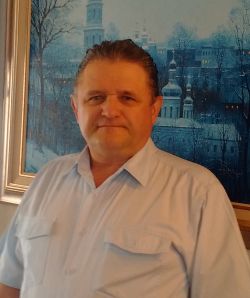
Centre of Expertise in Forecasting
Nelson Mandela University
Port Elizabeth, South Africa
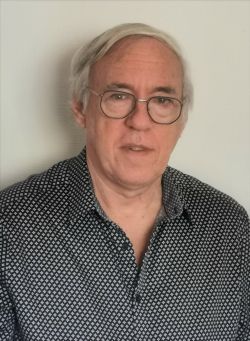
BETA and COEF
University of Lorraine
France
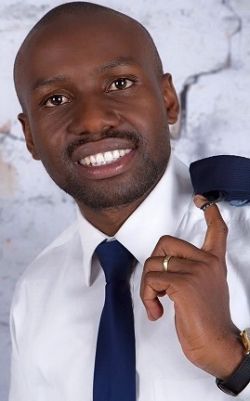
School of Statistics and Actuarial Science
University of the Witwatersrand
South Africa
